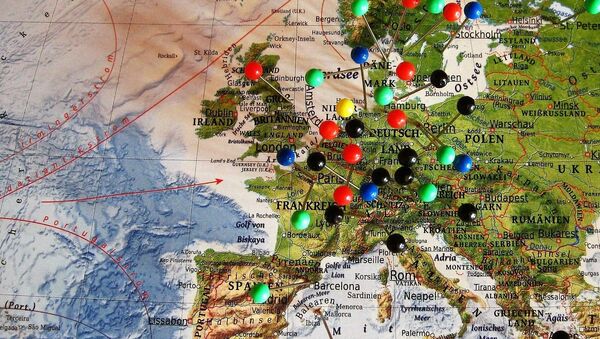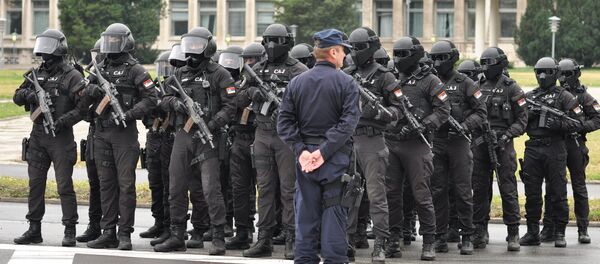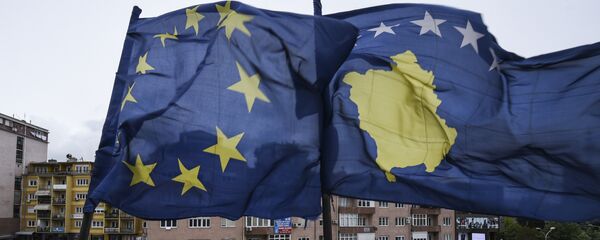Known as a critique of the US's policies in the Balkans, Meyer argues that the borders "more or less imposed" on the Balkan nations by the US and its European allies following the collapse of Yugoslavia do not correspond to the true state of affairs.

Recalling the conclusion of the Dayton Peace Accords, signed in December 1995, the CIA veteran pointed out that the agreement, aimed at ending the bloodshed in Bosnia and Herzegovina, was made in a hurry.
"They [US President Bill Clinton and Assistant Secretary of State Richard Holbrooke] were so anxious to get a solution and to do it quickly. I understand that a good part of Dayton was ending the bloodshed in Bosnia and [President of Serbia Slobodan] Milosevic was anxious to please the US, he wanted aid from the US and he spoke for the Bosnian Serbs," Meyer told Sputnik.
"Holbrooke was very adamant, very tough about the solution. He convinced the [US] administration that it was the right way to go," the CIA veteran said.
However, according to Meyer, it was clear from the very beginning that the state of Bosnia and Herzegovina wouldn't be sustainable in the long run.
"The country Bosnia exists on paper, it's a fictional place, really," the CIA veteran said, "The power doesn't lie in Sarajevo, it lies in other places, it lies with the ethnic communities, it lies with the American Embassy in Sarajevo, at least for the Federation."
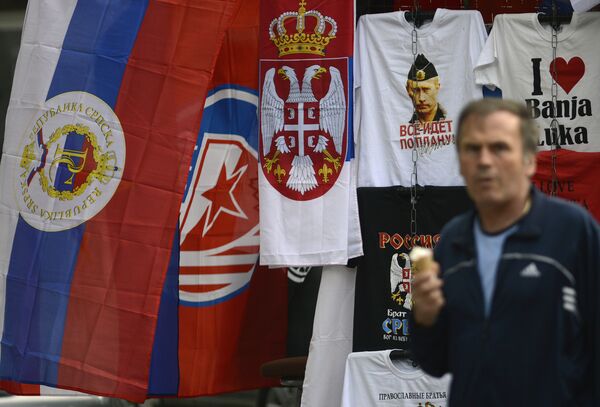
Meyer believes that the best way to solve tensions in the Balkan region is to redraw its borders… once again.
"It can be, it depends on how it's done. We have already redrawn borders here. Montenegro, a very-very close vote, but Montenegro in Serbian borders have been redrawn," Meyer noted, in a reference to a controversial border demarcation agreement between Kosovo and Montenegro.
"Much of the world has recognized Kosovo," the former CIA official continued, "not everybody, five countries in the EU have not, but that is redrawing borders. And as I said earlier, Bosnia doesn't really work very well and those borders are essentially redrawn."
Meyer highlighted that borders should be redrawn peacefully and insisted that in that way it wouldn't somehow violate international law.
"I think it should be done peacefully. There has to be some sort of creative leadership in the Balkans," he underscored.
"There is nothing sacred about borders. The international law doesn't prohibit peaceful change of borders," Meyer said.
"Borders of the Soviet Union changed, we saw Czechoslovakia changed borders and we saw Germany changed borders," the CIA veteran said, "So it is certainly possible."
As of yet, however, the only Balkan nation pushing ahead with the border change issue is the Albanians, who seek the creation of the so-called Greater Albania.
The Greater Albania doctrine envisions that the territories in southern Montenegro, southern Serbian territories including Kosovo and the Presevo Valley and northwestern parts of Macedonia should be incorporated into the existing Republic of Albania.
The CIA veteran doesn't exclude the possibility of the establishment of Greater Albania. Likewise, however, according to Meyer, some sort of "Greater Serbia" or a confederation of Orthodox populations of Macedonia, Montenegro, Serbia and the Republika Srpska could be created.
He called attention to the fact that the Republika Srpska is also seeking the possibility to join Serbia.
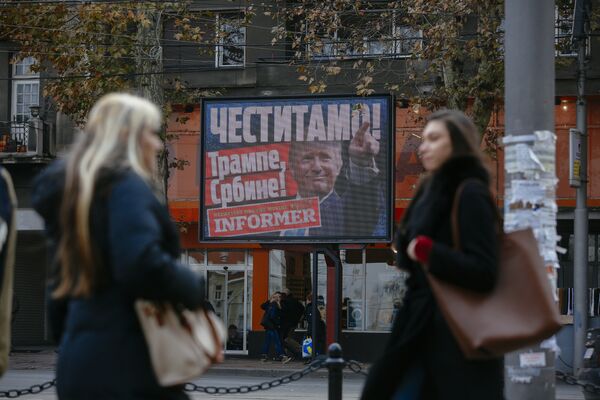
To accomplish such a bold task, the former Yugoslav nations should take their fate into their own hands, Meyer insists. According to the CIA veteran, the Balkan region needs "creative leadership."
However, not all observers share Meyer's enthusiasm, saying that the devil is always in the detail.
"Experts say that relations between the republics of the former Yugoslavia are now worse than ever since the Yugoslav Wars of 1991-2001. More and more republics and national entities in the Balkans are calling for redrawing borders and creating federations in already existing states," veteran journalist and RIA Novosti contributor Dmitri Dobrov writes, warning that the region risks becoming the "powder keg of Europe."
In this context, the efforts aimed at creating the Greater Albania could become the trigger for a new Balkan war. That means that Meyer's concept of a peaceful redrawing of borders in the Balkans may turn out to be nothing but wishful thinking.
At the same time, it's obvious that the US and EU's Balkan policy has proved inefficient.
"It is quite obvious that the 1990s policies of Washington and Brussels aimed at reconciling warring parties and creating multiethnic states in the Balkans have collapsed," Dobrov stressed.
Recently, religious and ethnic contradictions have intensified in the territory of former Yugoslavia. According to the Heidelberg Institute for International Conflict Research (HIIK), the Balkan region has been engulfed by 18 major and minor conflicts. Bitter contradictions continue to simmer between Slovenia and Croatia over border issues in the Piran Gulf; Serbia and Croatia still struggle to reach an agreement on the Island of Sarengrad and the Island of Vukovar; Republika Srpska signaling its interest in joining Serbia, while the self-proclaimed Republic of Kosovo remains a sore spot in relations between Serbs and Albanians.
The question arises whether the strategy aimed at "redrawing" borders in the Balkans is a remedy or recipe for disaster.
